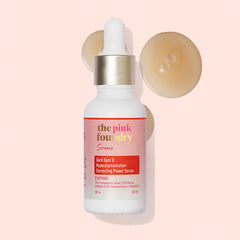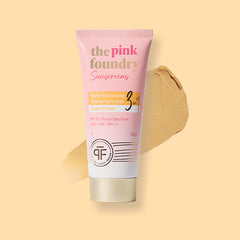What is Polydextrose?
Polydextrose in skincare refers to a versatile ingredient commonly employed in skincare formulations. Chemically, Polydextrose is a polymer composed of dextrose (glucose), sorbitol, and citric acid. In skincare, it serves multiple purposes, primarily acting as a humectant that helps retain moisture on the skin's surface. Its presence in skincare products is notable for imparting a lightweight and non-sticky feel upon application. Polydextrose is often found in moisturizers, serums, masks, and other skincare items, contributing to their texture and overall effectiveness. Importantly, it interacts favorably with the skin, promoting hydration without causing irritation. This makes it a suitable choice for various skin types, and while it's generally safe for use, those with particularly sensitive skin may want to perform a patch test.

Meaning of Polydextrose
Polydextrose in skincare refers to a versatile ingredient with a distinctive molecular structure that plays a crucial role in enhancing various skincare formulations. Known for its unique chemical characteristics, Polydextrose contributes to the smooth texture of skincare products, providing a desirable feel upon application. Its moisture retention properties make it valuable for hydrating the skin without leaving a greasy residue. Widely utilized in skincare formulations, Polydextrose enhances the cosmetic elegance of products, improving their overall user experience. Understanding its compatibility with different skin types is important, and patch testing is often recommended to ensure safety.
Benefits of Polydextrose
- Enhanced Texture: Polydextrose contributes to the smooth and desirable texture of skincare products, improving their application and feel on the skin.
- Moisture Retention: With notable moisture retention properties, Polydextrose helps to hydrate the skin effectively, contributing to a softer and more supple complexion.
- Non-Greasy Feel: The ingredient is valued for its ability to moisturize the skin without leaving behind a greasy or oily residue, enhancing the overall comfort of skincare applications, making it a useful ingredient in products for people with oily skin.
- Cosmetic Elegance: Widely used in skincare formulations, Polydextrose enhances the cosmetic elegance of products, making them more enjoyable to use and improving the user experience.
- Versatile Application: Polydextrose finds application in various skincare products, showcasing its versatility and adaptability in different formulations.
- Compatibility: While offering significant benefits, Polydextrose is generally considered safe; however, compatibility with different skin types is emphasized, with patch testing recommended for individuals with sensitive skin.
Related Blogs

Skin Minimalism: The Simple Skincare Routine You Need
TABLE OF CONTENTS What is Skin Minimalism? Benefits of Skin Minimalism Best Minimal Skincare Routine Skin...
Continue Reading
Ethyl Ascorbic Acid vs. L Ascorbic Acid: Which Vitamin C Form is Best for Your Skin?
TABLE OF CONTENTS Ethyl Ascorbic Acid vs L Ascorbic Acid: Key Differences Benefits of Each Form of Ascorbic Acid ...
Continue Reading
Best Anti-Aging Ingredients You Should Include in Your Skincare Routine
TABLE OF CONTENTS Best Anti-Ageing Ingredients for Skin How These Ingredients Work How to Use Anti-Ageing Ingredi...
Continue Reading
How Often to Use Salicylic Acid: Finding the Right Frequency for Your Skin
TABLE OF CONTENTS How Often Should I Use Salicylic Acid Serum? How Often to Use Salicylic Acid for Specific Skin Types ...
Continue Reading















